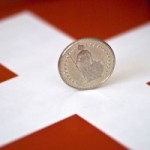The yen advanced against the US dollar on Monday as a slump in Asian stocks bolstered demand of the Japanese currency, which is regarded as a safe-haven. Meanwhile, US markets are to remain closed due to a national holiday.
Having hit a session low at 103.87 at 01:00 GMT, USD/JPY traded at 103.98 at 13:06 GMT, losing 0.33% for the day. Support was likely to be received at January 14th low, 103.02, while resistance was to be met at January 17th high, 104.47.
Yens demand was supported after Nikkei 225 Stock Average and MSCI Asia Pacific both declined by 0.6% and 0.3% respectively. The slump in the stock indexes, increases the appeal of the Japanese currency as it is regarded as a safe-haven.
Last week, Bank of Japan Governor Haruhiko Kuroda stated that the central bank will continue with its quantitative easing program, as long as the price target is stable and the program achieves its goals.
Bank of Japan has been purchasing more than 7 trillion JPY (68.4 billion USD) of government bonds each month in its struggle to achieve 2% inflation in two years since April 2013. There are growing concerns that BoJ will have to increase the scale of its asset-purchasing program this year, which puts heavy pressure on the yen.
Japan is in a process of recovery after a 15-year period of deflation.
Meanwhile, a series of overall upbeat data provided signs that US economic growth is accelerating and recovery seemed sustainable. US home construction slowed less than analysts had projected, while industrial output expanded for a fifth consecutive month. Only the consumer sentiment came at a lower-than-expected reading in January, but this was not enough to change the overall market consensus that Fed will continue tapering throughout 2014.
A report by the US Commerce Department on Friday, showed that housing starts decreased 9.8% to 999 000 annualized rate in December, after they have been revised to 1.11 million pace in the previous month, the strongest figure since November 2007. Analysts had expected that housing starts will decline to 985 000 in December. Building permits fell by 3% to a 986 000 pace.
Last year, builders began constructing 923 400 homes, which is 18.3% higher than a year ago and is the largest number since 2007, when 1.36 million houses were constructed.
At the same time, industrial production in the United States rose 0.3% in December on a monthly basis, in line with expectations, supported by overall recovery in manufacturing and mining sectors. On annual basis, industrial output expanded 3.7% in December, or 0.9% higher than the peak registered before the global recession. November’s result has been revised down to a 1.0% increase from 1.1% gain previously. In October and September, however, nation’s industrial production has been moderately revised up.
The US dollar was slightly pressured, following the release of a worse-than-expected consumer sentiment data in January. January’s preliminary reading of the Thomson Reuters/University of Michigan consumer sentiment index registered at 80.4, defying analysts’ projections for an advance to 83.5 from December’s final reading of 82.5.
Overall, the reports provided support to greenback’s demand, as they favored the view that the Federal Reserve Bank may continue tapering during the year. Central bank’s policy makers said on December 18th that they will reduce monthly asset purchases to $75 billion from $85 billion, underscoring improving labor market conditions.
The bank will probably continue to pare stimulus by $10 billion at each policy meeting before exiting the program in December, according to a Bloomberg News survey of 41 economists, conducted on January 10th. The Federal Open Market Committee is scheduled to meet next on January 28-29.
Elsewhere, GBP/USD hit a session high at 1.6453 at 09:10 GMT, after which consolidation followed at 1.6448, adding 0.17% for the day. Support was likely to be received at January 17th low, also the pair’s weakest level since December 18th, while resistance was to be encountered at January 17th high, 1.6458.





